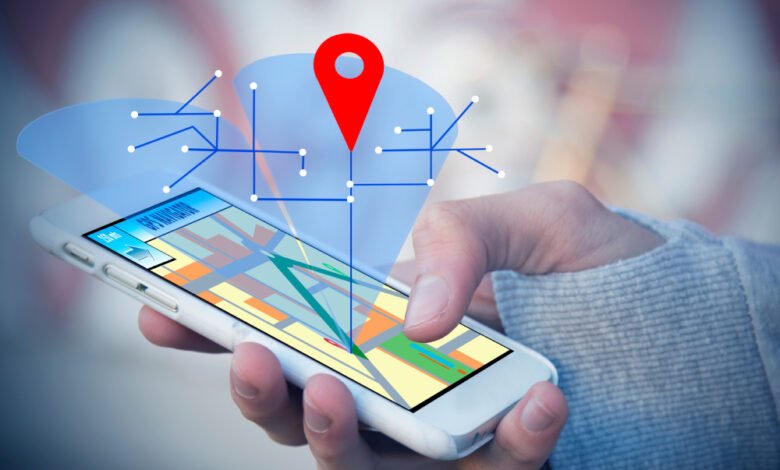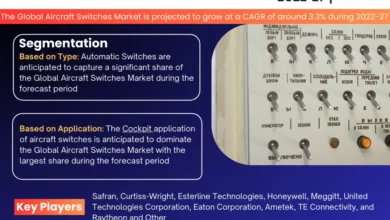Protecting Privacy in the Age of Cell Phone Tracking

In today’s digital age, where cell phones are ubiquitous and tracking technologies are pervasive, protecting privacy has become paramount. With the constant evolution and widespread adoption of cell phone tracking technologies, individuals face unprecedented challenges in safeguarding their personal data and maintaining autonomy over their digital lives. In this article, we will explore various strategies and considerations for protecting privacy in the age of cell phone tracking.
1. Understanding Cell Phone Tracking Technologies:
Before delving into privacy protection strategies, it’s essential to understand the different tracking technologies used in mobile tracker. These include GPS tracking, cell tower triangulation, Wi-Fi tracking, Bluetooth tracking, IMSI catchers, and smartphone apps. Each of these technologies has unique capabilities and implications for privacy, highlighting the need for tailored protection strategies.
2. Privacy Protection Strategies:
a. Limit Location Sharing:
One of the most effective ways to protect privacy is to limit location sharing on your cell phone. Review the privacy settings of your device and apps, and disable location services for applications that do not require it for essential functionality. Consider enabling location sharing only when necessary, and be mindful of the potential risks associated with sharing your precise location.
b. Use Encryption and Secure Connections:
Ensure that your cell phone and communications are encrypted to prevent unauthorized access to your data. Use secure Wi-Fi networks and virtual private networks (VPNs) to encrypt your internet traffic and protect your online activities from prying eyes. Additionally, use encrypted messaging apps and email services to communicate securely with others.
c. Regularly Update Software and Apps:
Keep your cell phone’s operating system and apps up to date to ensure that you have the latest security patches and enhancements. Software updates often include fixes for vulnerabilities that could be exploited by malicious actors to gain access to your device or data. Set your device to automatically download and install updates whenever possible.
d. Review App Permissions:
Regularly review the permissions granted to apps on your cell phone and revoke access to sensitive data or features that are not essential for their functionality. Be cautious when granting permissions to new apps and consider the potential privacy implications before installing them. Look for alternative apps that prioritize user privacy and data protection.
e. Minimize Data Collection:
Be mindful of the data collected by cell phone tracking technologies and take steps to minimize the amount of personal information shared with third parties. Opt out of data collection and targeted advertising whenever possible, and consider using privacy-enhancing tools and services that prioritize user anonymity and data protection.
f. Be Wary of Public Wi-Fi Networks:
Exercise caution when connecting to public Wi-Fi networks, as they may not be secure and could expose your data to potential threats. Avoid accessing sensitive information or conducting financial transactions while connected to public Wi-Fi, and use a VPN to encrypt your internet traffic and protect your privacy.
g. Educate Yourself and Others:
Stay informed about the latest developments in cell phone tracking technologies and privacy protection strategies. Educate yourself and others about the risks associated with tracking and the importance of protecting privacy in the digital age. Share best practices and resources with friends, family, and colleagues to help them safeguard their personal data and maintain control over their digital lives.
Legal and Regulatory Considerations:
In addition to individual privacy protection strategies, it’s essential to advocate for stronger legal and regulatory protections for consumer privacy. Support legislation that enhances transparency, accountability, and user control over personal data, and hold companies accountable for data breaches and privacy violations. Work with policymakers and advocacy groups to promote privacy-centric policies and regulations that prioritize user rights and freedoms.
Conclusion:
Protecting privacy in the age of cell phone tracking requires a multifaceted approach that combines individual strategies, legal and regulatory considerations, and collective action. By understanding the risks associated with tracking technologies and implementing proactive privacy protection measures, individuals can mitigate threats to their personal data and maintain control over their digital lives. Additionally, advocating for stronger privacy protections at the legislative and regulatory levels is essential to safeguarding consumer privacy rights in an increasingly interconnected world. By working together to prioritize privacy and data protection, we can ensure that individuals retain autonomy over their personal information and maintain trust in the digital ecosystem.
Frequently Asked Questions (FAQs) – Protecting Privacy in the Age of Cell Phone Tracking:
1. What is cell phone tracking, and why is it a concern for privacy?
Cell phone tracking refers to the use of various technologies to monitor and record the location and activities of a mobile device. This can include GPS tracking, cell tower triangulation, Wi-Fi tracking, Bluetooth tracking, IMSI catchers, and smartphone apps. Privacy concerns arise because tracking technologies can potentially infringe on individuals’ privacy rights by allowing their movements and activities to be monitored without their consent.
2. How can I protect my privacy from cell phone tracking?
There are several strategies you can employ to protect your privacy from cell phone tracking:
- Limit location sharing: Disable location services for apps that do not require it, and only enable location sharing when necessary.
- Use encryption and secure connections: Encrypt your communications and use secure Wi-Fi networks and VPNs to protect your online activities.
- Regularly update software and apps: Keep your device’s operating system and apps up to date to ensure you have the latest security patches.
- Review app permissions: Regularly review the permissions granted to apps on your device and revoke access to sensitive data or features when necessary.
- Minimize data collection: Be mindful of the data collected by tracking technologies and take steps to minimize the amount of personal information shared with third parties.
3. Are there any legal protections against cell phone tracking?
Legal protections against cell phone tracking vary depending on jurisdiction and applicable laws. In many countries, there are laws and regulations that govern the collection, use, and disclosure of personal data, including data collected through cell phone tracking technologies. Additionally, some jurisdictions have specific laws that regulate government surveillance activities, such as the use of IMSI catchers by law enforcement agencies. However, the legal landscape surrounding cell phone tracking is complex and evolving, and individuals should familiarize themselves with relevant laws and regulations in their jurisdiction.
4. What are some privacy-enhancing tools and services I can use to protect my privacy?
There are several privacy-enhancing tools and services available that can help protect your privacy from cell phone tracking:
- Virtual private networks (VPNs): VPNs encrypt your internet traffic and route it through servers located in different geographic locations, helping to protect your online activities from prying eyes.
- Encrypted messaging apps: Encrypted messaging apps use end-to-end encryption to secure your messages and prevent them from being intercepted or accessed by third parties.
- Privacy-focused web browsers: Privacy-focused web browsers offer features such as ad blocking, tracking protection, and private browsing modes to help protect your online privacy.
- Privacy-focused search engines: Privacy-focused search engines do not track your searches or store your search history, helping to protect your privacy while browsing the web.
5. What should I do if I believe my privacy has been violated through cell phone tracking?
If you believe your privacy has been violated through cell phone tracking, there are several steps you can take:
- Document the incident: Keep detailed records of any suspicious or concerning activity, including dates, times, and descriptions of the behavior.
- Report the incident: Report the incident to the appropriate authorities, such as law enforcement agencies or regulatory bodies, and provide them with any relevant information or evidence you have gathered.
- Take steps to protect your privacy: Take immediate steps to protect your privacy, such as changing your passwords, enabling two-factor authentication, and reviewing and updating your privacy settings and permissions on your device and apps.
6. How can I stay informed about privacy issues and developments in cell phone tracking?
Staying informed about privacy issues and developments in cell phone tracking is essential to protecting your privacy effectively. You can stay informed by:
- Following reputable news sources and blogs that cover privacy and cybersecurity topics.
- Joining privacy advocacy groups and organizations that work to protect consumer privacy rights.
- Participating in online forums and communities dedicated to privacy and cybersecurity, where you can learn from others and share your experiences and knowledge.
- Educating yourself about privacy laws and regulations in your jurisdiction and staying up to date on any changes or developments in the legal landscape.
7. Are there any emerging technologies or trends that could impact privacy in the future?
Yes, several emerging technologies and trends could impact privacy in the future, including:
- The Internet of Things (IoT): The proliferation of connected devices and sensors that make up the IoT presents new privacy challenges, as these devices collect and transmit vast amounts of data about individuals’ behaviors and activities.
- Artificial intelligence (AI) and machine learning: AI and machine learning technologies have the potential to revolutionize many aspects of our lives, but they also raise concerns about privacy, particularly when used to analyze and interpret large datasets containing sensitive personal information.
- Biometric authentication: The widespread adoption of biometric authentication methods, such as fingerprint scanning and facial recognition, could raise privacy concerns if not properly implemented and regulated.
As these technologies continue to evolve, it will be essential to address privacy concerns proactively and ensure that individual’s rights and freedoms are protected in the digital age.


